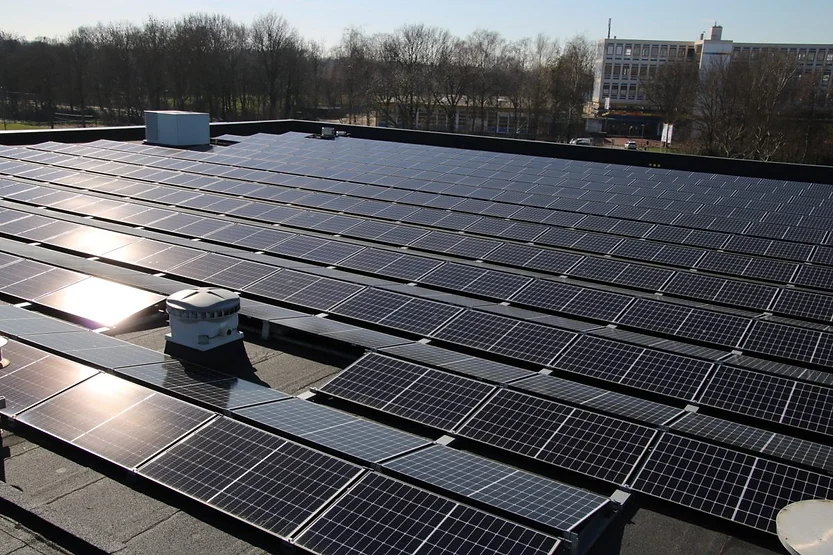The solar energy market has seen an unprecedented boom over the past few decades. As technology advances and concerns over climate change heighten, more people and businesses are turning to solar power as a viable alternative to traditional energy sources. While the industry’s growth is evident, several myths persist—especially when it comes to the market’s perceived saturation. Many believe that there’s little room for new players, particularly startups. However, these misconceptions ignore crucial realities about the solar industry.
In this article, we’ll debunk the myths surrounding the solar market and explain why there’s still significant room for innovation and new business opportunities. Whether you’re considering venturing into solar energy or seeking to expand your solar startup, now is the perfect time to capitalize on the sector’s evolving landscape. IntegrateSun, a key player in the solar industry, continues to demonstrate the growing demand for solar battery installation and innovative energy solutions, proving that the market is far from being oversaturated.
Myth 1: The Solar Market Is Saturated
One of the most common misconceptions is that the solar market is overcrowded with too many players, making it nearly impossible for startups to succeed. While it’s true that established companies like IntegrateSun have made significant strides, there’s still ample room for growth, especially in niche areas.
Reality: Rapid Growth and Market Gaps
The solar energy market is expanding rapidly. According to a report from the International Energy Agency (IEA), solar power capacity increased by 22% in 2023, and it is projected to continue growing at an exponential rate. Despite this growth, there are still geographical areas and customer segments that are under-served. For instance, rural regions, developing countries, and specific sectors like residential solar battery installation remain untapped markets. These areas represent vast potential for startups with innovative solutions tailored to unique needs.
Furthermore, as more businesses and homeowners look to adopt renewable energy, demand is rising faster than supply. Startups can step in to fill these gaps by offering more personalized or localized solar solutions, often with greater agility than larger, established companies.
Myth 2: It’s Too Expensive to Start a Solar Business
Many entrepreneurs are discouraged from entering the solar market due to perceived high startup costs. From purchasing solar panels to hiring professional solar installers, initial investments can seem prohibitive. However, this myth overlooks the numerous opportunities available for low-cost market entry.
Reality: Reduced Costs and Accessible Financing
The cost of solar technology has been decreasing steadily over the past decade. Prices for solar panels, inverters, and batteries have dropped by over 80% since 2010. Solar startups can benefit from this trend by sourcing affordable materials and taking advantage of scalable technologies.
Additionally, there are various government incentives and tax credits available to help offset startup costs. For instance, in the United States, the federal Investment Tax Credit (ITC) allows businesses to deduct 30% of their solar installation costs from their taxes. Many states also offer additional rebates and grants to promote the adoption of solar energy.
Startups can further reduce costs by partnering with experienced solar companies like IntegrateSun for installation services or to procure high-quality solar battery installation solutions. These partnerships can help new entrants avoid hefty upfront costs while gaining access to the latest technology and professional expertise.
Myth 3: Only Large Corporations Can Compete
Another pervasive myth is that only massive corporations with significant financial backing can thrive in the solar market. Many assume that startups cannot compete with giants like Tesla or First Solar, which have the resources to dominate the industry.
Reality: Startups Offer Innovation and Agility
While large corporations may have a more extensive reach, startups possess a distinct advantage: innovation and agility. In an industry where technology is evolving at a breakneck pace, the ability to adapt quickly and introduce new products can make all the difference.
For instance, startups focusing on specialized technologies such as solar battery installation or energy storage solutions have seen significant success. These startups often develop cutting-edge systems that address specific challenges, such as improving battery storage efficiency or creating modular, easy-to-install solar setups for homes.
Companies like IntegrateSun, known for their advanced energy solutions, continuously push the boundaries of what solar power can achieve. Startups can thrive by focusing on similar innovations, developing next-generation solar panels, or creating unique battery storage systems that enhance energy reliability for customers. Moreover, as the demand for solar power rises, so does the need for customization, flexibility, and better customer service—areas where startups can outperform large, bureaucratic corporations.
Myth 4: The Future of Solar is Uncertain
Some potential entrepreneurs worry about the long-term viability of the solar industry. They fear that solar energy might become obsolete due to technological advances in other renewable sources or that policy changes could negatively affect the sector.
Reality: Solar Is a Critical Part of the Energy Transition
The global push toward renewable energy is stronger than ever, and solar power remains at the forefront of this transition. Solar technology has proven to be highly efficient, scalable, and adaptable, making it a cornerstone of future energy systems. Governments worldwide are doubling down on their commitments to achieving net-zero emissions, which will only increase the demand for solar energy.
Moreover, with innovations like solar battery installation, solar power is becoming more reliable and efficient. These systems allow users to store excess energy generated during the day for use at night, making solar a 24/7 energy source. IntegrateSun, for instance, has been at the forefront of providing solar battery solutions, empowering homeowners and businesses to maximize their energy independence.
Startups have ample opportunities to capitalize on this trend by developing better energy storage solutions, integrating AI-powered energy management systems, or exploring alternative applications like floating solar farms or solar-powered electric vehicle (EV) chargers.
Myth 5: Solar Installation is Too Complicated for Startups
Many entrepreneurs believe that entering the solar industry requires extensive technical expertise and regulatory knowledge. The complexity of solar panel installation and the strict licensing requirements can seem daunting, deterring potential startups from taking the plunge.
Reality: Outsourcing and Partnerships Simplify Operations
While solar installation does require professional expertise, startups can easily overcome this hurdle by partnering with established companies. Many successful solar startups rely on outsourcing solar panel installation to certified professionals, allowing them to focus on their core strengths—whether that’s sales, product development, or marketing.
Collaborating with experienced players like IntegrateSun also simplifies the process. By leveraging their installation services, startups can offer high-quality solar solutions without having to invest in the manpower or expertise required for installation. This strategy allows new entrants to hit the ground running and establish themselves as key players in their local markets.
Conclusion: There’s Plenty of Room for Solar Startups
The myths surrounding the solar market are largely unfounded. Not only is the solar industry continuing to grow, but there are also numerous gaps and untapped opportunities for startups. Whether you’re focused on solar battery installation, developing the next generation of panels, or providing tailored energy solutions, the solar market offers abundant opportunities for entrepreneurs to innovate and succeed.
By partnering with established companies like IntegrateSun, leveraging government incentives, and focusing on niche areas, startups can thrive in the solar energy sector and contribute to a sustainable future. Now is the time to dispel the myths and seize the opportunities that the solar market offers.







